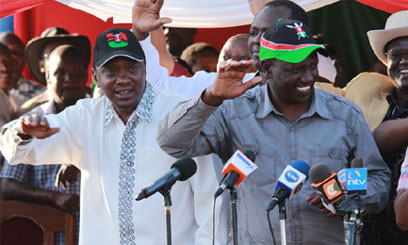The council said that while it had faith in the judicial system and the right to guarantee fair hearing for the accused, it hoped that the process would still uphold the freedom of speech and expression of all Kenyans as provided for in law.
“The council recognises the justification for the principle of sub-judice and the right to accused persons and civil litigants to fair proceedings, free of influence from media reports and other public voices that may have interest in matters being considered by court,” the council said in a statement.
“In the past this rule had the effect of limiting public discussion and media reporting of cases in order to allow the court to address itself to them without interference,” it further stated.
However, it said, the country’s Constitution 2010, protected the freedom of speech and of the press.
“The Constitution, in Article 33, guarantees every person the right to freedom of expression, which includes freedom to seek, receive or impart information and ideas. This right must be preserved,” it said.
It further quoted article 34 of the Constitution, which provides that the State shall not exercise control over or interfere with any person engaged in broadcasting, the production or the circulation of any publication or the dissemination of information by any medium.
“While the sub-judice law falls within the realm of common law, it now must be weighed against the protection provided to the media in the bill of rights, which, in our view, is superior,” the statement read.
“Further, in enforcing the sub-judice rule, it is our view that courts should weigh its impact on the wider interest of the Kenyan nation,” it added. Read a related story here.
They further questioned whether in this digital era, the sub-judice rule should continue to be observed in Kenya with same stringency that it was upheld a century ago in England.
“With the reforms going on in the judiciary, the calibre of judges we are recruiting surely can make up their legal minds without being swayed by discussions taking place in the public arena and in organs of mass communication,” it said.
Meanwhile, the Editors’ Guild has also expressed its dismay at the gag order.
The guild says it is concerned that the courts would give what appears to be a blanket gag order on a matter of such great public interest.
“The principle of sub-juiced has its place, but it cannot be used as a pretext for gagging the media or curtailing the constitutional rights of free expression,” the guild said in a statement.
It added that the Constitution offers provisions guaranteeing freedom of expression and freedom of the media, amongst many other rights that cannot be abridged and gives the public the right to information.
“The question whether Messrs Uhuru Kenyatta and William Ruto are barred from standing in the presidential elections following International Criminal Court confirmation of charges for crimes against humanity must continue to be debated freely and openly with no restrictions whatsoever.”















































